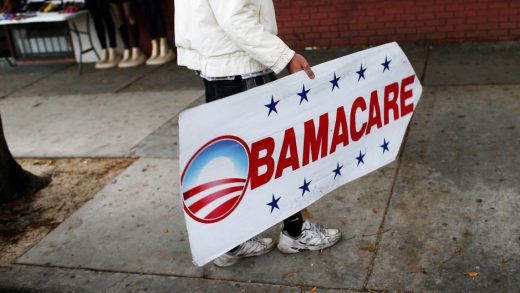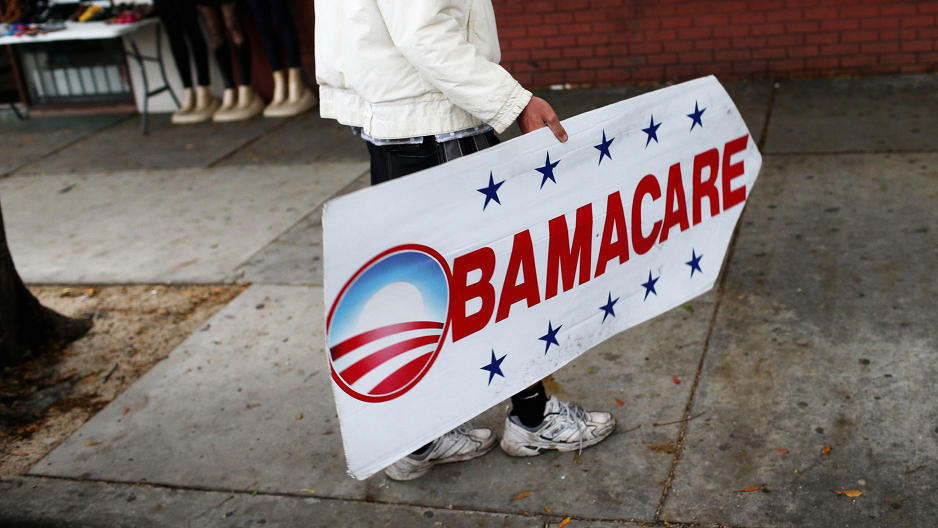What The Uncertain Future Of Obamacare Means For Entrepreneurs
Earlier this year, Rich Robinson was entertaining two very different job offers. The first, at a large company, would mean stability and guaranteed health insurance. The other, at an early-stage startup, was a far more risky but exciting option to build a team from the ground up.
Robinson, a web designer based in Seattle, ultimately chose the steady corporate job. After President Trump took office, Robinson took note of Republican calls to repeal and replace the Affordable Care Act, or ACA, President Obama’s landmark health reform bill. He recalled a time, prior to the ACA, when those without employer-sponsored health insurance could be denied coverage for pre-existing conditions. “My wife is disabled and I have high blood pressure,” he says.
The ACA has been subject to ample criticism, but many forget that it offers benefits to consultants, freelancers, small-business owners, and entrepreneurs. As Y Combinator chief Sam Altman recently pointed out, the passage of the bill instilled confidence in many entrepreneurs in his network to start companies. In many cases, these founders had chronic health conditions, like Dan Carroll, founder of the ed-tech startup Clever, who has lived with Crohn’s Disease for a decade.
“We could see the ACA as a big step in separating having an employer from having health insurance,” says Natalie Foster, cofounder of Peers, an organization that supports the sharing economy movement, and a former digital director for the Democratic National Committee.Recent statistics from Treasury Department show that one in five people who accessed health insurance from the exchanges created by the ACA were business owners or self employed.
With uncertainty about the future of the ACA, some experts say it is wise for would-be entrepreneurs to stay put in their steady jobs. That’s particularly true for those who have health problems or rely on expensive medications. “With no cohesive strategy for the ACA, I’d suggest that folks stay very cautious right now,” says Micah Weinberg, president of the Economic Institute at the Bay Area Council and a health policy researcher. “This is an example of the chilling effects that this environment of uncertainty will have on the startup economy.”
Others say that entrepreneurs shouldn’t be deterred, at least not because of fears of losing coverage. For now, the pre-existing conditions provision won’t be touched. And in a recent interview with Fox News, Trump seems to have softened his language around repeal.
Jason Andrew, a broker who has spent more than a decade advising startup founders on their health benefits, says it’s a question for each individual to answer for themselves. It all depends on the founders’ “risk tolerance,” he argues.
Andrew also points out that the ACA was no silver bullet for entrepreneurs. Many of his former clients were startup founders and consultants earning six-figure salaries, who didn’t qualify for subsidies under the ACA. They bought insurance through the exchanges and many were faced with “rising rates and narrower networks,” as insurers looked for ways to recoup costs.
For now, it remains to be seen whether a GOP replacement plan would offer protections, such as the pre-existing condition provision, in the long run.
Julia Lipton, who recently left her job at One Medical to start her own company, says she wasn’t deterred at the prospect of losing coverage in a few years.
In the meantime, she bought health insurance through Covered California, the state exchange, and was pleasantly surprised by the range of options available to those who aren’t making a steady salary. “For me, it wasn’t worth missing the opportunity to fulfill my dream while I can,” she says. “Sadly though, this is just another risk that entrepreneurs have to evaluate.”
Fast Company , Read Full Story
(58)



